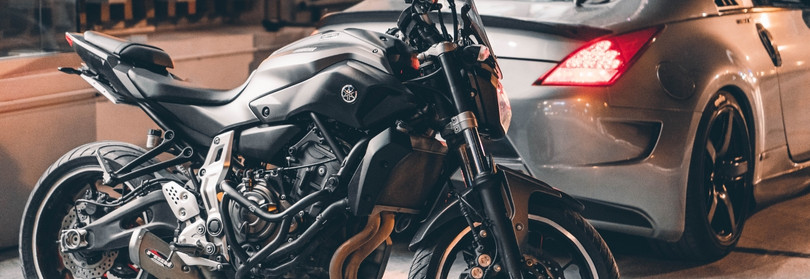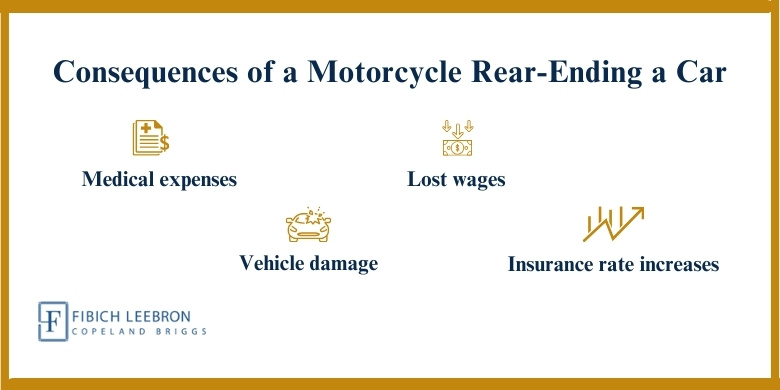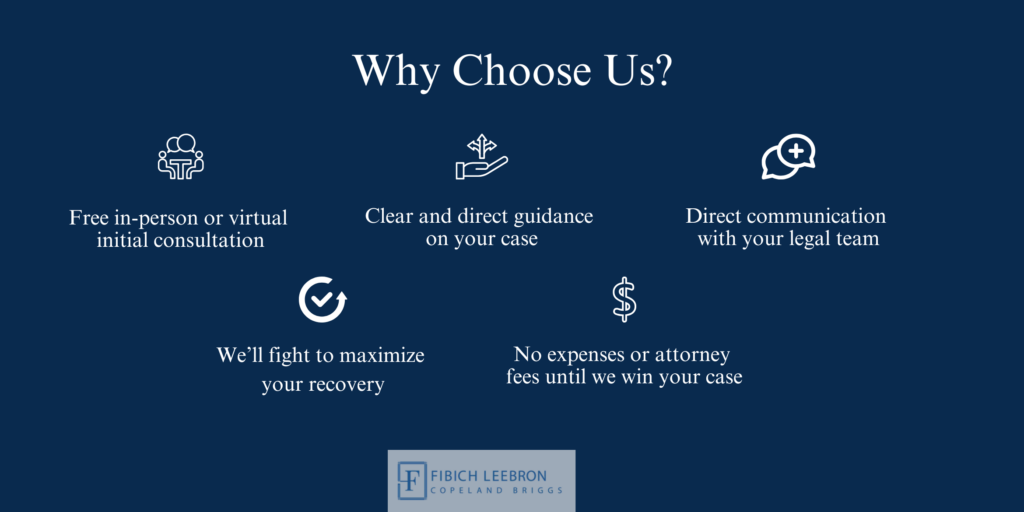
If you are in a motorcycle and car accident in Texas, you may wonder which party is at fault. Even in a rear-end accident, who’s at fault depends on the specific circumstances of the case. The leading driver could be at fault, the trailing motorcyclist could be at fault, both parties could share fault, or a third party could be at fault.
Common Causes of Rear-End Accidents Involving Motorcycles
Some of the most common causes of rear-end Texas motorcycle accidents include:
- Speeding: If the motorcyclist is speeding, they may not have enough time to react to a slowed car ahead.
- Aggressive Driving: If either the driver or the motorcyclist drives aggressively, such as by cutting off other motorists, they could be liable for the crash.
- Tailgating: If the motorcyclist is tailgating the car, they may not be able to react in time if the car brakes or slows.
- Poor Road Conditions: Slippery roads, severe potholes, and other poor road conditions can contribute to rear-end motorcycle accidents.
Consequences of a Motorcycle Rear-Ending a Car

What happens when a motorcycle hits a car depends on which vehicle you’re in. If you are on the motorcycle, the consequences of the accident may be far more severe:
- Medical Expenses: While the car’s passengers may sustain injuries, motorcycle accident victims often suffer far worse injuries because they aren’t protected by a vehicle shell.
- Lost Wages: The injuries suffered in the accident can result in victims being unable to work, either temporarily or permanently.
- Vehicle Damage: Both vehicles in the crash may suffer damage, depending on the speed of the collision.
- Insurance Rate Increases: Since Texas is an at-fault auto insurance state, the at-fault driver’s or rider’s insurance rates may increase after an accident.
Determining Liability in a Rear-End Accident in Texas
Determining who is at fault in a rear-end collision requires an examination of evidence such as:
- Traffic camera footage that caught the accident
- Photographs of the accident scene
- Eyewitness statements
- Testimony from experts such as crash reconstruction specialists
- The medical records of those injured in the collision
Steps to Take After a Motorcycle Rear-End Accident
After a motorcycle rear-end accident, you should take the following steps to protect your right to seek compensation:
- Report the accident to the police and ask for a copy of their accident report.
- Seek ongoing medical care for your injuries.
- Keep all medical bills you receive related to the accident.
- Document the accident by writing down what you remember.
- Avoid providing a statement to an insurance adjuster.
- Contact an experienced motorcycle accident lawyer.

Contact Our Houston Accident Attorneys for Help
If you were injured in a rear-end accident involving a motorcycle and a car, contact Fibich, Leebron, Copeland & Briggs for a free consultation with a Texas Board of Legal Specialization certified personal injury lawyer. Our firm has been in business for over three decades, and attorney Tommy Fibich has over 50 years of legal experience. Let us show you how our experience can help you seek the compensation you deserve.
